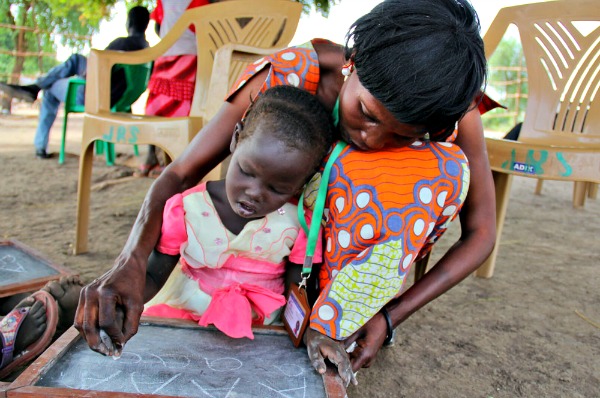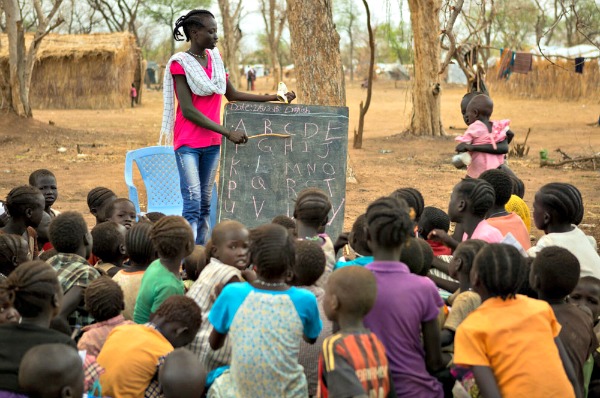
In recent days, the world has witnessed increased displacement of thousands of people due to conflicts going on in various countries. And while disruption to normal life, deaths and massive suffering are the most noticeable consequences of conflicts, equally grave is the loss of educational opportunities for affected populations.
Mercy in Motion campaign
At the moment, more than 60 million people are in displacement the world over with at least half of them being children, and therefore, the need for education for persons in displacement is great. In response to the unveiling of the Holy Year of Mercy, Jesuit Refugee Service (JRS) decided to extend its educational support to refugees by launching the Global Education Initiative, to increase the number served in its educational projects by 100,000 from the current 120,000, to 220,000 by the year 2020.
In a private audience with JRS staff in November 2015, Pope Francis encouraged the initiative by saying that to “…give a child a seat at school is the finest gift you can give”.
Mercy in Motion campaign is therefore an advocacy and fundraising platform, with the target being to raise $35 million to support its educational projects in the next five years.
An investment in peace
Education is usually among the first casualties of war or conflict. As a result, refugees’ children are forced to cut short their studies, while others do not even have the opportunity to go to school. Entire generations are often at risk of losing their right to education, which in turn limits their chances for integration and contribution to the host communities.
Similarly, for those who eventually return home, they are limited in terms of what they can contribute in building their nations, and most importantly, to sustainable peace. It is for these reasons and others that JRS has long considered education a life-saving intervention and recognises it as a lasting contribution to long-term durable solutions to conflicts: an investment in peace.

Education within conflict
It is also notable that many conflicts today are taking longer and longer to resolve, with UNHCR statistics showing that people are spending an average of 17 years in exile! And although many displaced persons have found a place to rest—at least for the time being amongst local communities in Africa, Asia and Europe—there are others still within their own countries living in internally displaced camps. In these circumstances, the children are faced with many barriers to learning such as lack of schools, overcrowding in a few available schools, lack of teachers, and language barriers.
Schools offer children protection from trafficking and forced recruitment (by armed gangs), a sense of normalcy especially after going through the experience of war, and imparts important values such as peace, justice and reconciliation.
Undoubtedly, education helps restore human dignity while at the same time empowering uprooted people to take charge of their lives both in exile and upon returning home. In several places such as South Sudan, former refugees who benefited from education scholarships while in exile have gone back to help rebuild their country.
Through the Mercy in Motion Campaign, JRS hopes to ensure that the right to education for thousands of displaced children and young people is restored and protected.
If you would like to support this education initiative, a donation can be made here and would be very much appreciated.
Author: Beatrice Gikonyo is Regional Advocacy Officer, Jesuit Refugee Service Eastern Africa.

